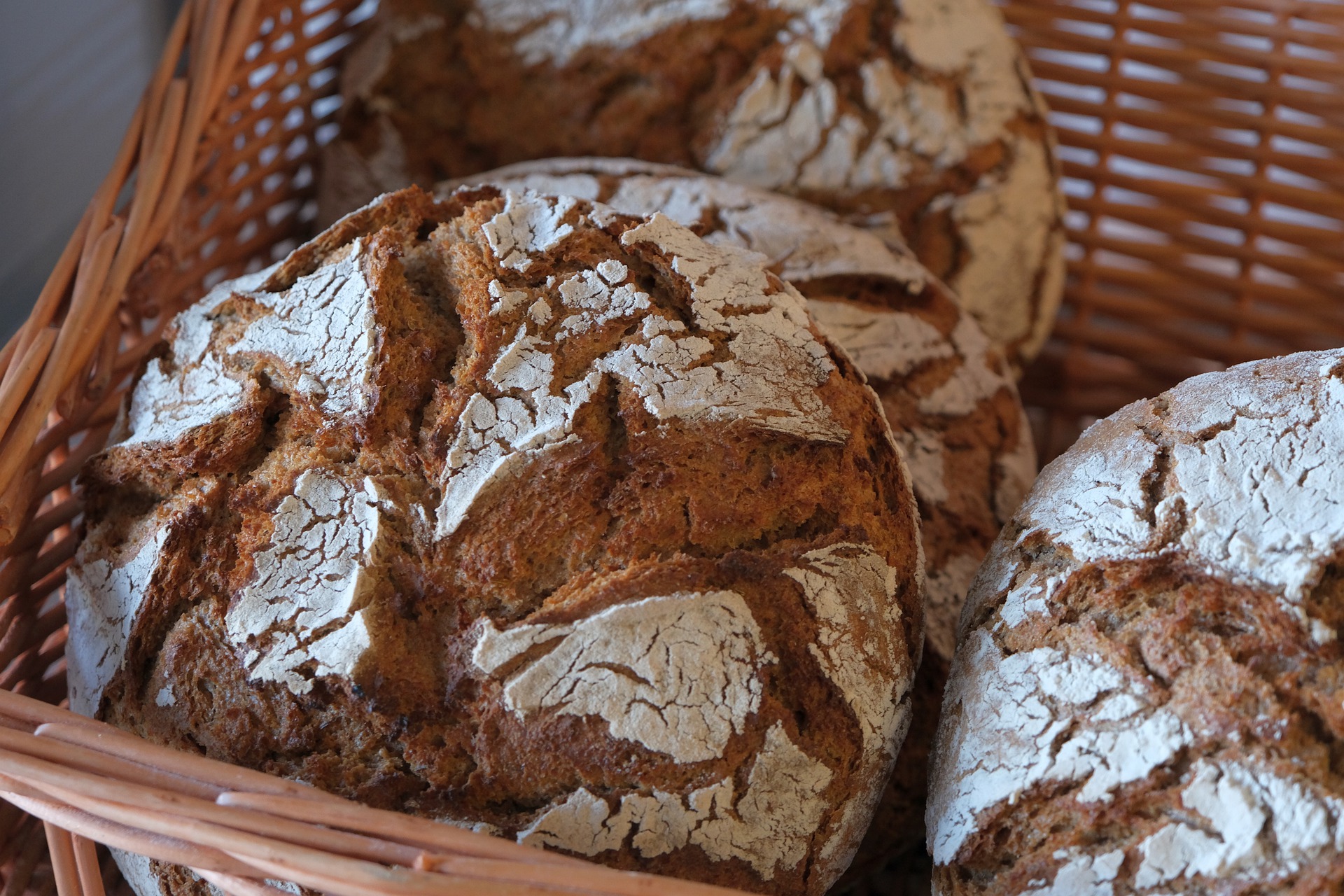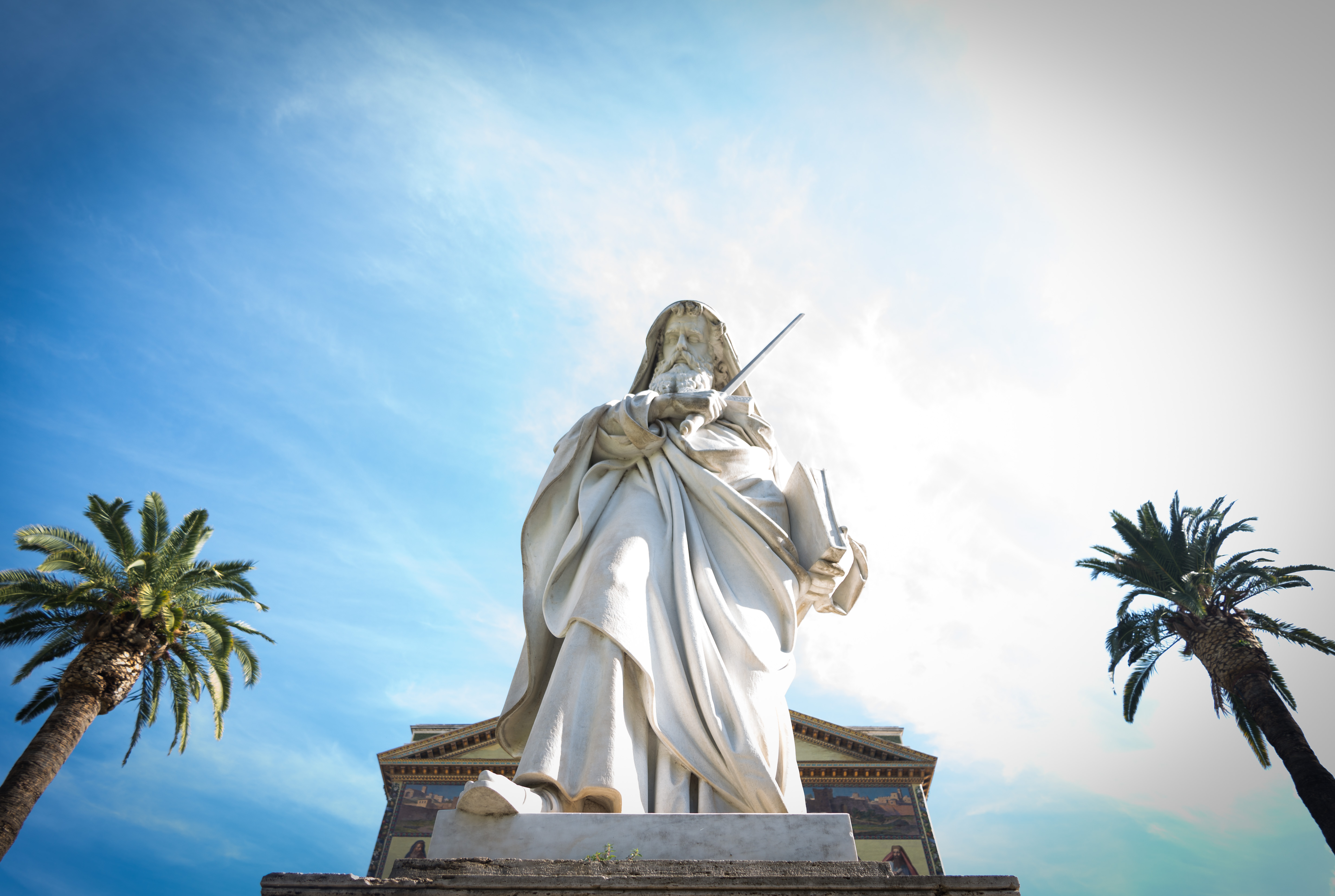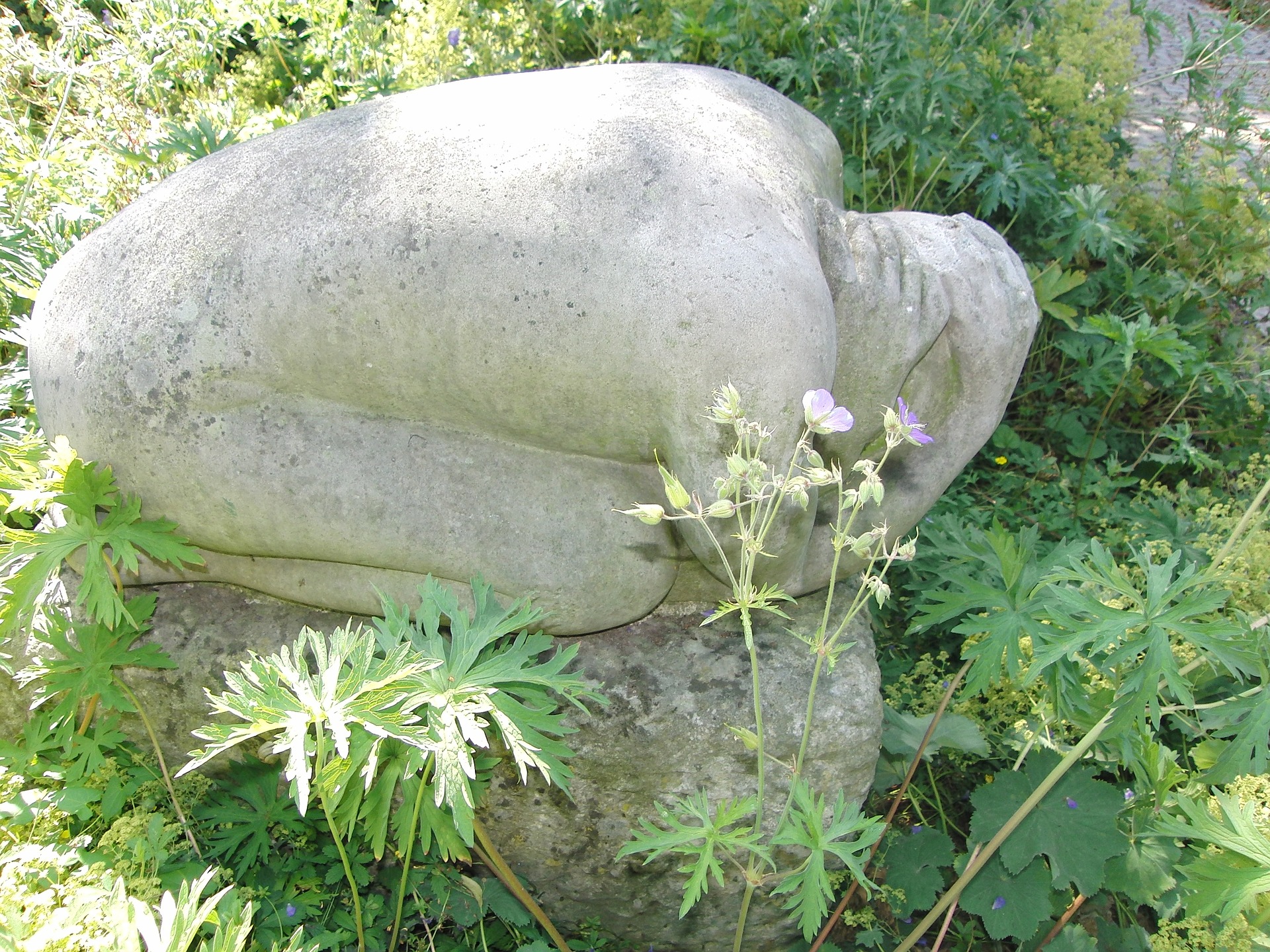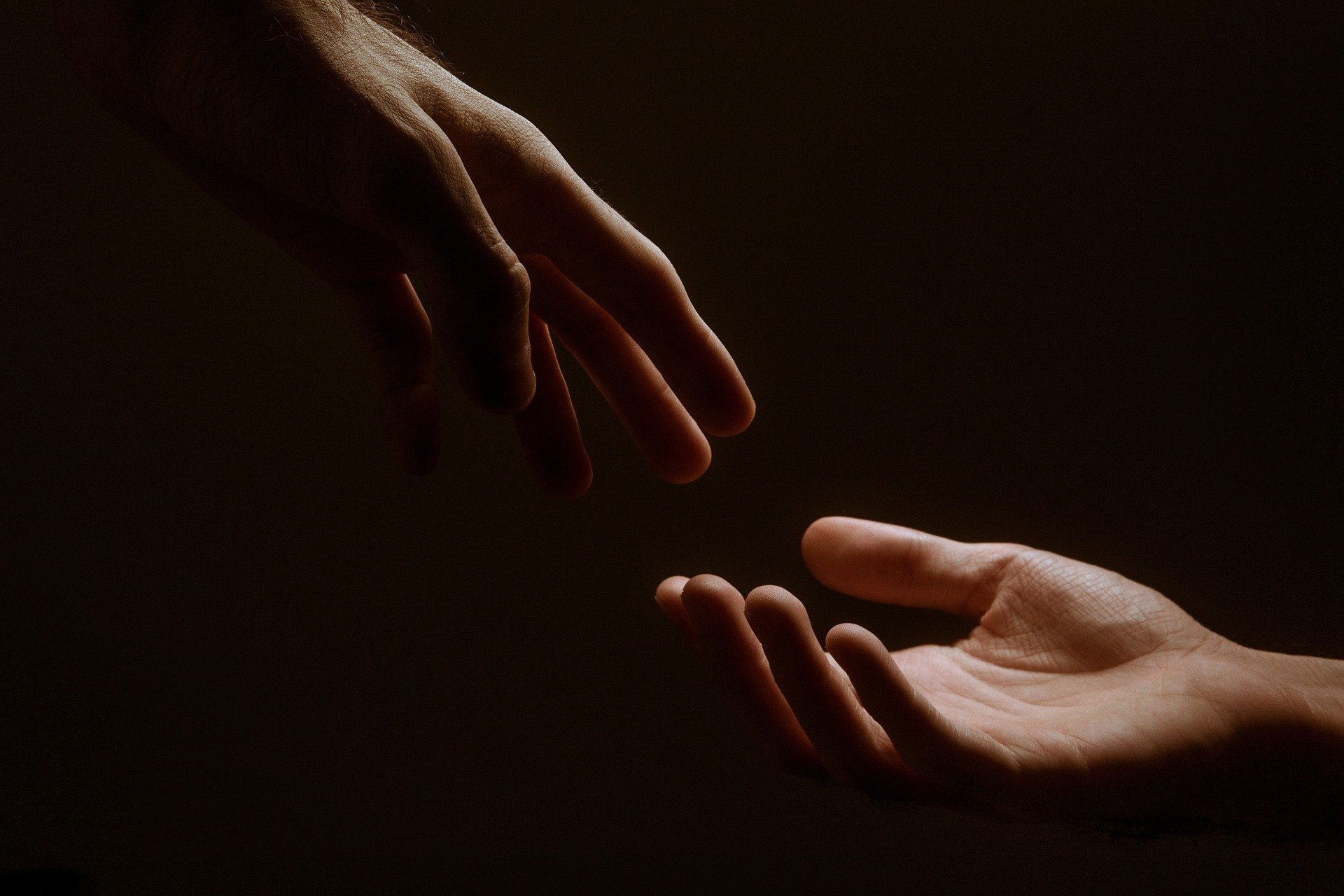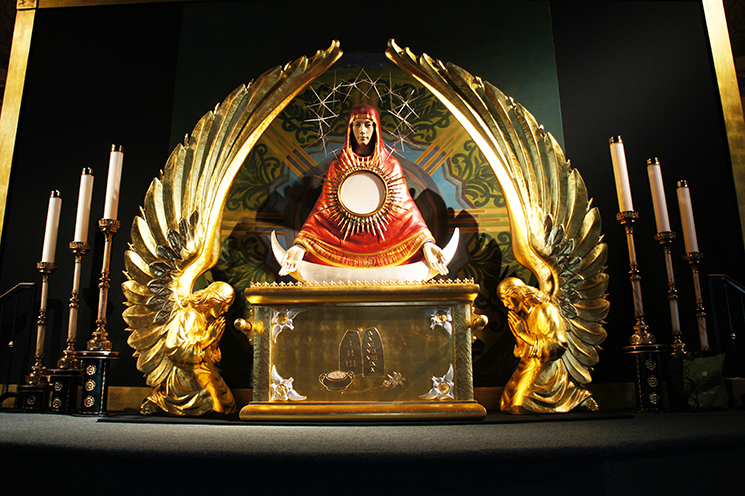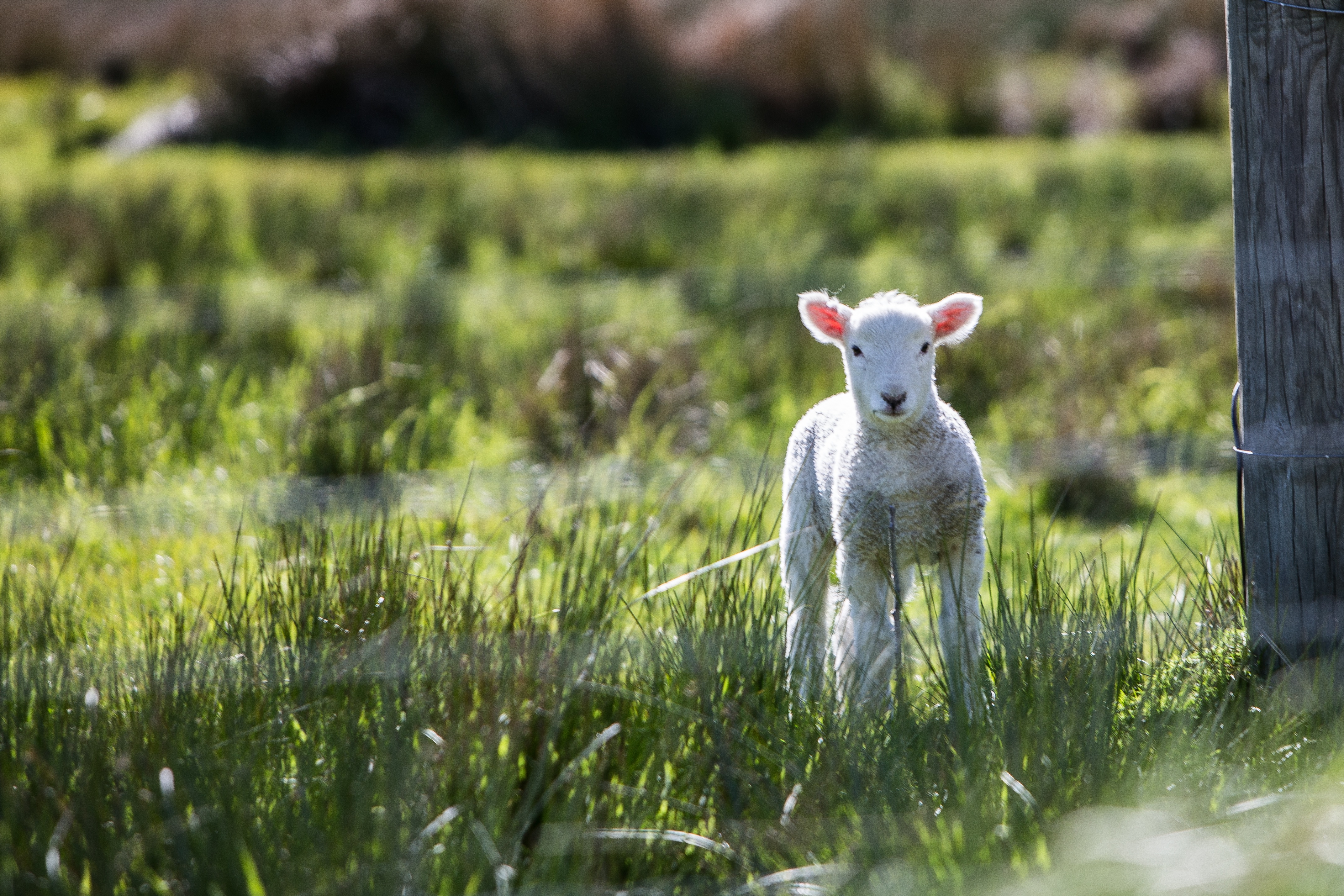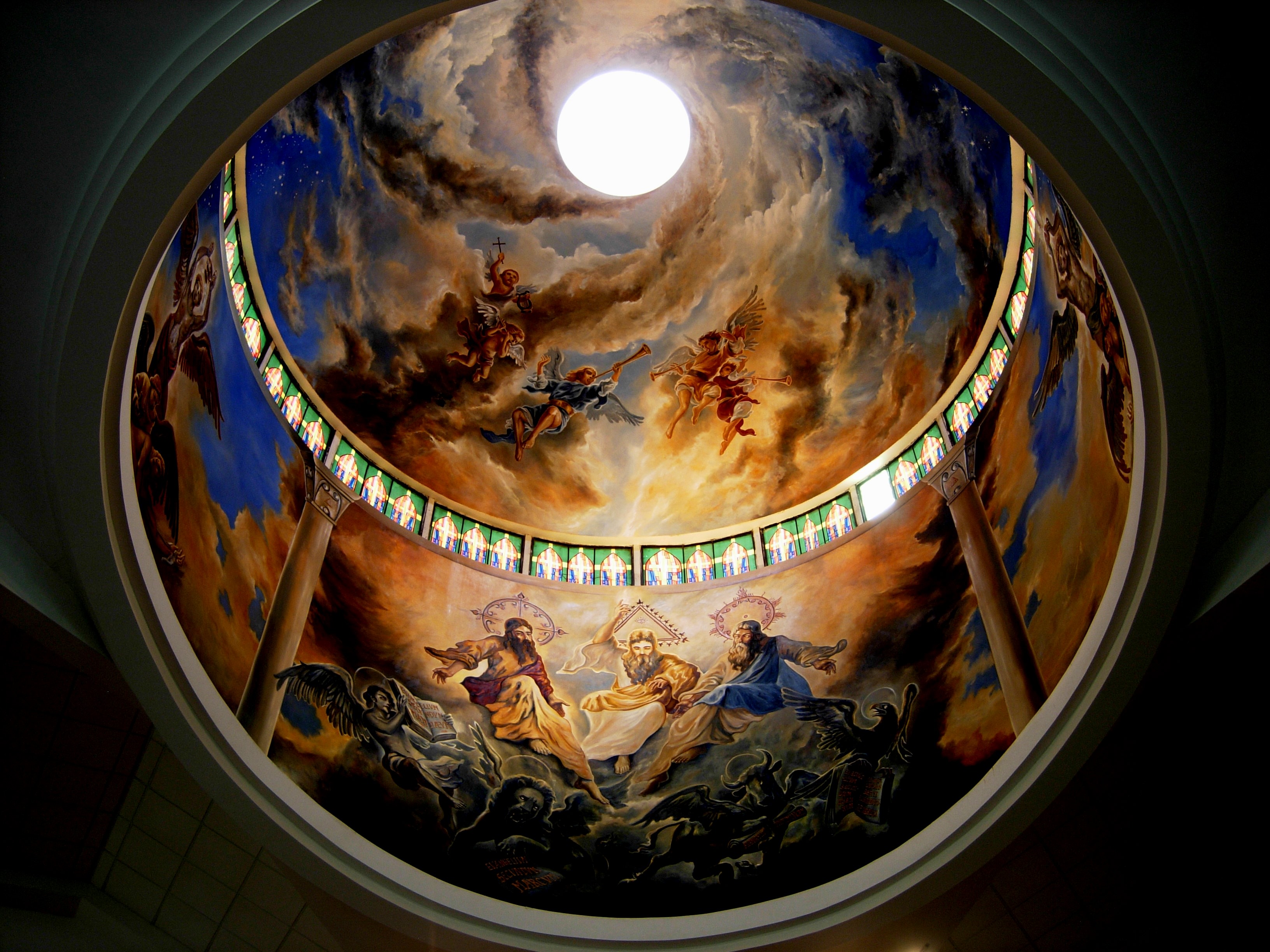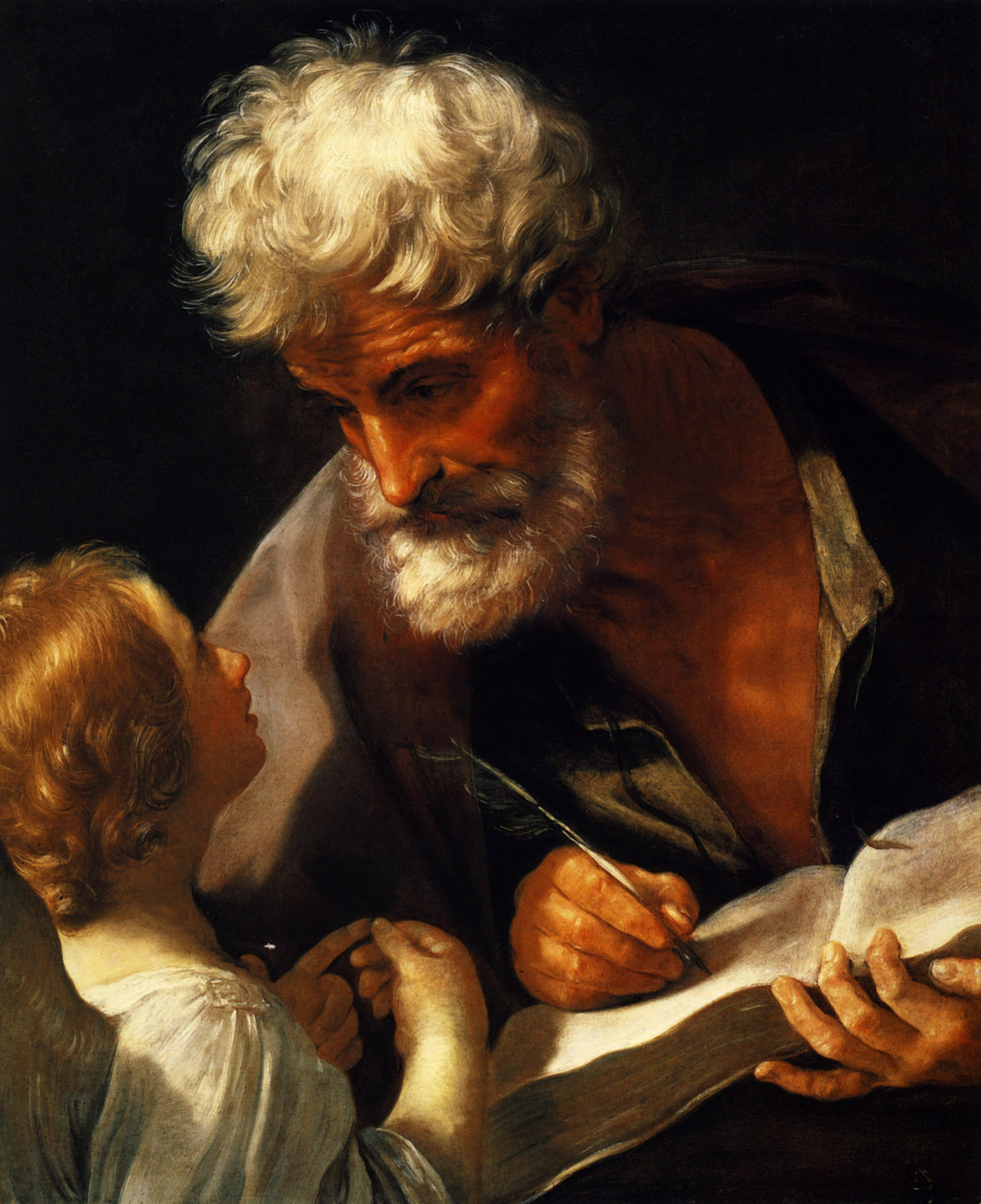Have you ever been so hungry that you were in danger of collapsing? Jesus is not usually prone to hyperbole, so his comment here seems factual: if he sends the crowd that has been following him for three days away to their homes, “they will collapse on the way.”
Jesus’ heart is moved with pity for them and is determined to do something to help these thousands of people, while the disciples seem to be somber realists. “What else can we possibly do?” they say. They are out of options.
But love is never out of options. Love finds a way. And the endless, creative, Love of God can make a way where there is no way. And so, Jesus orders them all to sit down and he takes the seven loaves and gives thanks. To Whom? To the Father in Heaven, undoubtedly. Then he breaks the bread and gives it to the disciples to distribute.
Does this sound familiar? This thanksgiving and blessing and breaking of bread is the way Jesus prefigures the Eucharist over and over in the Gospels. As a prefiguring of the Eucharist, we see that Jesus does the blessing and his disciples take care of the distribution. And we see that there is always, always enough to satisfy all. There is always an abundance, for all. An OVERabundance, even. When everyone has eaten and is satisfied, the disciples gather the fragments and fill seven baskets! This Living Bread that came down from Heaven may seem small, but it will never run out.
And we are reminded that the Eucharist we receive is a prefiguring of the Heavenly Banquet to which we are all called, even as it is our sustenance along the way. Without the Eucharist, we are in danger of collapsing on our way to the Wedding Feast, but Jesus has made certain that we will have all we need to arrive whole and prepared!
The next time we approach the altar to receive the Body, Blood, Soul, and Divinity of Christ, let’s recall with confidence that this is the same Jesus who fed the multitude because his heart had pity on them, and we can be confident that he feeds us his very SELF because his heart is beating with love for us as well.
 Kathryn Mulderink, MA, is married to Robert, Station Manager for Holy Family Radio. Together they have seven children (including Father Rob), and four grandchildren. She is President of the local community of Secular Discalced Carmelites and has published five books and many articles. Over the last 30 years, she has worked as a teacher, headmistress, catechist, Pastoral Associate, and DRE, and as a writer and voice talent for Catholic Radio. Currently, she serves the Church by writing and speaking, and by collaborating with various parishes and to lead others to encounter Christ and engage their faith. Her website is www.KathrynTherese.com
Kathryn Mulderink, MA, is married to Robert, Station Manager for Holy Family Radio. Together they have seven children (including Father Rob), and four grandchildren. She is President of the local community of Secular Discalced Carmelites and has published five books and many articles. Over the last 30 years, she has worked as a teacher, headmistress, catechist, Pastoral Associate, and DRE, and as a writer and voice talent for Catholic Radio. Currently, she serves the Church by writing and speaking, and by collaborating with various parishes and to lead others to encounter Christ and engage their faith. Her website is www.KathrynTherese.com
Feature Image Credit: Innviertlerin, https://pixabay.com/photos/bread-loaf-food-basket-baked-6995092/
